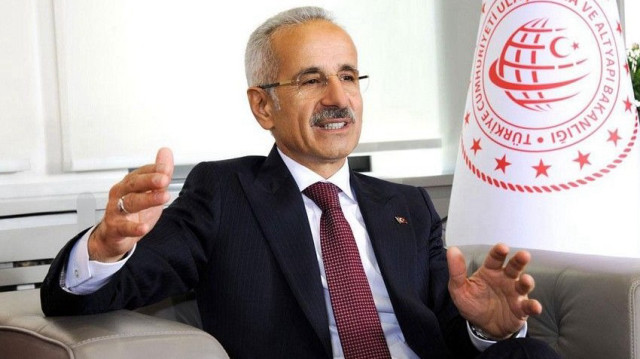
Sustainable Aviation Fuel directive to promote domestic fuel refinery investments, reduce import dependence, support tech-driven infrastructure, says Abdulkadir Uraloglu
The Turkish civil aviation sector is entering a new era in which it “fulfills its environmental responsibilities, prioritizes domestic production, and fully complies with international standards,” Türkiye's transport and infrastructure minister told Anadolu on Friday.
Abdulkadir Uraloglu said a “green era” is starting with the Sustainable Aviation Fuel (SAF) directive from Türkiye's Civil Aviation Directorate.
“Türkiye has taken a step towards a policy that is environmentally friendly and climate responsible, which is not only important for the environment but also for our industrial policies and energy supply security,” he said.
The nation's aviation and transportation policies have been reshaped with the net zero emissions goals of 2053, he said.
With the new directive, the use, supply, and monitoring of aviation fuels will be subject to specific international technical standards, such as the Carbon Offsetting and Reduction Scheme for International Aviation (CORSIA) by the International Civil Aviation Organization (ICAO).
Uraloglu said the new directive also promotes domestic fuel refinery investments, reducing dependence on imports and thereby supporting tech-driven production infrastructure.
“This directive applies to all national and international air carriers operating international flights, airport operators, non-hazardous workplaces, and individuals licensed by Türkiye's Energy Market Regulatory Authority, covering flights from Türkiye ... and activities involving aircraft with a maximum take-off weight of over 5,700 kilograms (12,566 pounds),” he said.
The directive does not apply to humanitarian, medical, or firefighting flights, or flights by state-owned aircraft.
“The directorate will announce the required SAF use and the minimum emission reduction per liter before the end of the third quarter for each year on its website,” he said. “Fuel suppliers must ensure SAF-blended fuel meeting the emission reduction per liter requirement in the least and air carriers will be obligated to consume the specified amount.”
“Air carriers will be required to load at least 90% of their fuel required when departing from Türkiye under this directive,” he noted.
Uraloglu stressed that he SAF must meet the current standards and requirements of the ICAO, and Türkiye's leading organizations have taken an active role in this process.
“Key players in the energy sector led by (refinery operator) Tupras are finalizing their preparations for SAF production with an aim to begin commercial production by 2026,” he said, noting that other refinery investments like Azerbaijani state-owned oil firm Socar's Turkish subsidiary SOCAR Türkiye are also involved in the process.
“We will continue our efforts to ensure that Türkiye achieves a strong and green aviation system, in line with international standards through regulations like the SAF Directive,” he added.







